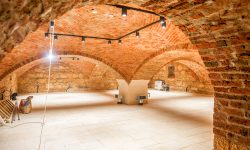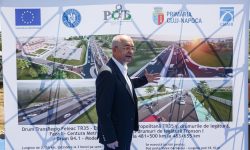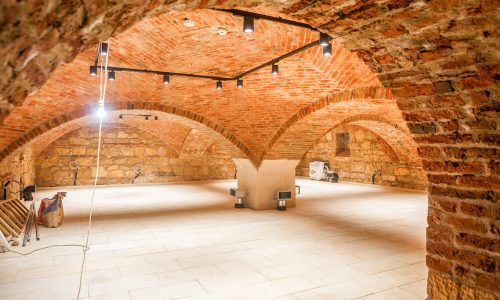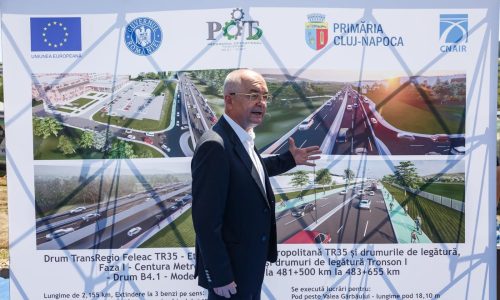As Moldova approaches a pivotal moment in its history, with the presidential election offering a choice between a pro-Western and a pro-Eastern candidate, the Moldovan diaspora in Cluj-Napoca has mobilised to voice their stance. Within a week of organising, they gathered to demonstrate their support for a European-oriented future, underscoring the growing divide in Moldova’s political landscape.
On Friday, October 27th, two hours after a highly anticipated presidential debate, around 30 Moldovans and supporters assembled at Union Square in Cluj-Napoca. The demonstrators, waving blue European Union flags alongside Moldovan national flags, chanted and delivered speeches calling for Moldova’s continued path toward European integration. Their message was one of hope and determination, with the aspiration that the country would further solidify its ties with the European Union and that current president Maia Sandu would secure a second term in office.
The peaceful gathering, which lasted for just under two hours, had been authorised by the Cluj-Napoca City Hall, with local security forces stationed nearby to maintain order. The demonstrators expressed a clear vision: a future for Moldova that aligns with European values, rather than falling back under the influence of Russia.
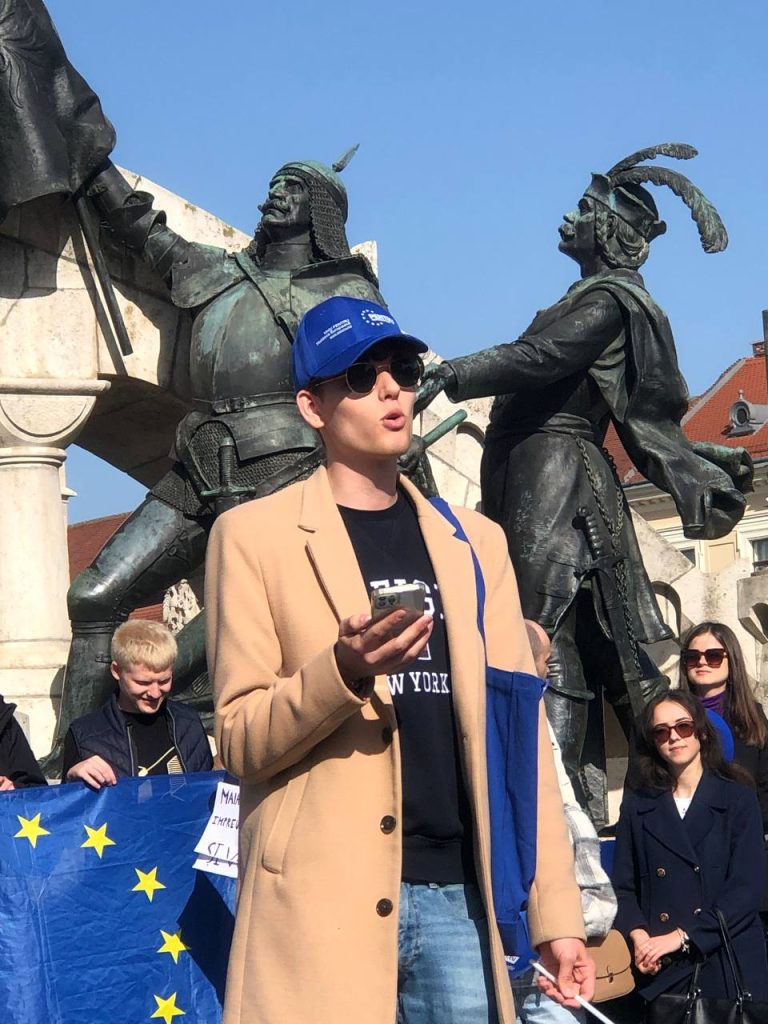
Moldova’s Struggle Between East and West
The protest comes at a time when Moldova is facing significant geopolitical pressure. Since the Russian invasion of Ukraine in early 2022, Eastern Europe has experienced heightened tensions. Moldova, which shares a border with Ukraine, has been directly affected by the conflict, facing economic hardships, an influx of refugees, and rising security concerns. The war has further deepened the divide within Moldova over the country’s orientation—towards Russia or the West.
Moldova’s historical and cultural ties to Russia have long shaped its political landscape, with pro-Russian parties maintaining a strong presence. However, the ongoing war in Ukraine has spurred a growing pro-European sentiment among many Moldovans, especially the younger generation and the diaspora. They see integration with the European Union as a path to greater stability, democracy, and economic prosperity.
Russia’s history of interference in Moldova, including support for the breakaway region of Transnistria and energy blackmail tactics, has only added to the urgency of the situation. Concerns about Russian influence in Moldova’s elections are not new, with numerous accusations over the years of meddling through political and financial means. The stakes in the upcoming presidential election are thus viewed as a choice between maintaining Moldova’s sovereignty and its aspirations for European integration, or succumbing to a resurgence of Russian influence.
Diaspora’s Role in Shaping Moldova’s Future
The Moldovan diaspora has a history of active involvement in the country’s politics, often serving as a catalyst for change. Many in the diaspora, who have experienced life in European nations, advocate for closer ties with the EU and fear that a pro-Eastern presidency would risk reversing the gains made toward modernisation and reform.
Friday’s demonstration in Cluj-Napoca was a testament to this sentiment. For the Moldovans who attended, it was not just a show of solidarity but a call to action. The hope is that their voices will resonate beyond Romania’s borders, inspiring more Moldovans at home and abroad to engage in the democratic process and make their votes count in favour of a European path.
In a time marked by uncertainty and conflict in the region, the gathering served as a reminder of Moldova’s ongoing struggle for a clear and independent direction. While small in scale, the flashmob symbolised a larger movement that seeks to shape Moldova’s future and ensure it remains on a course toward integration with the European family.
